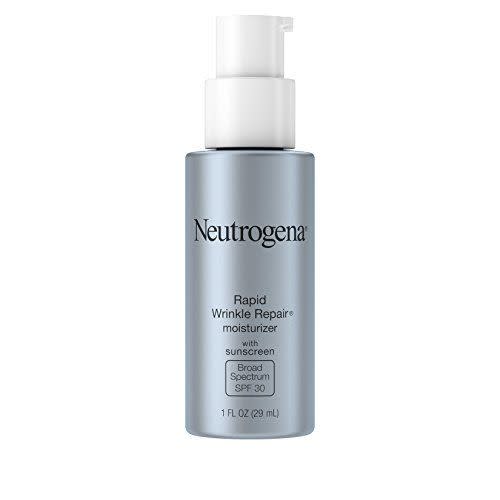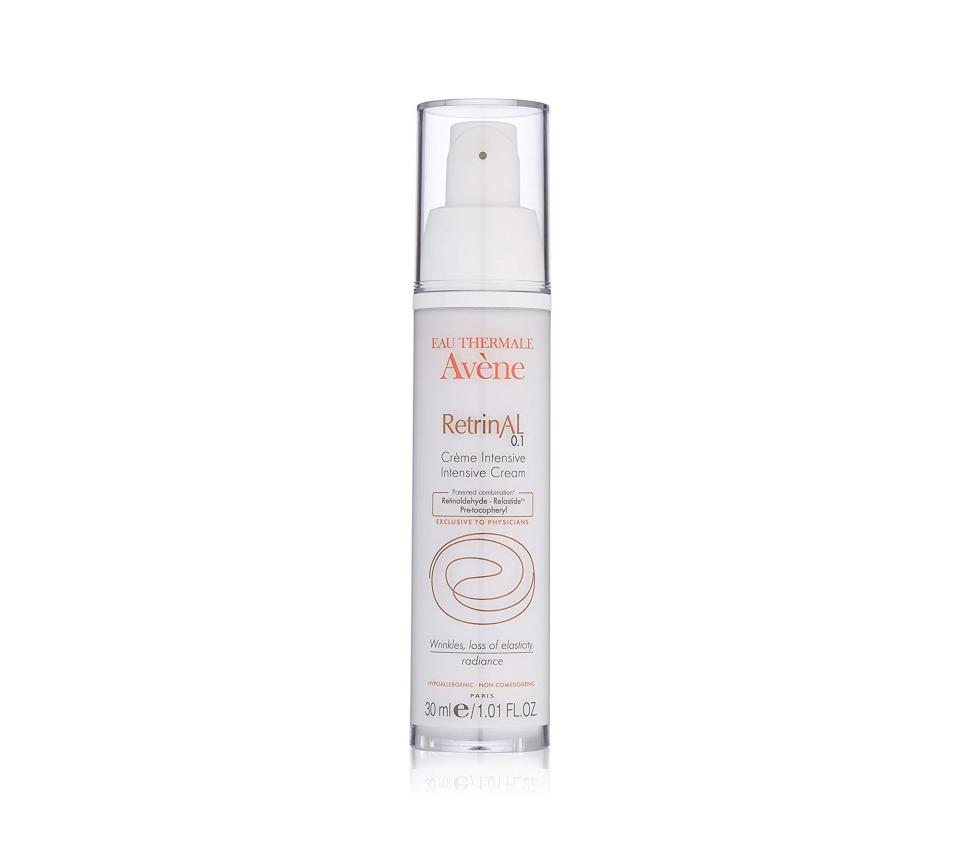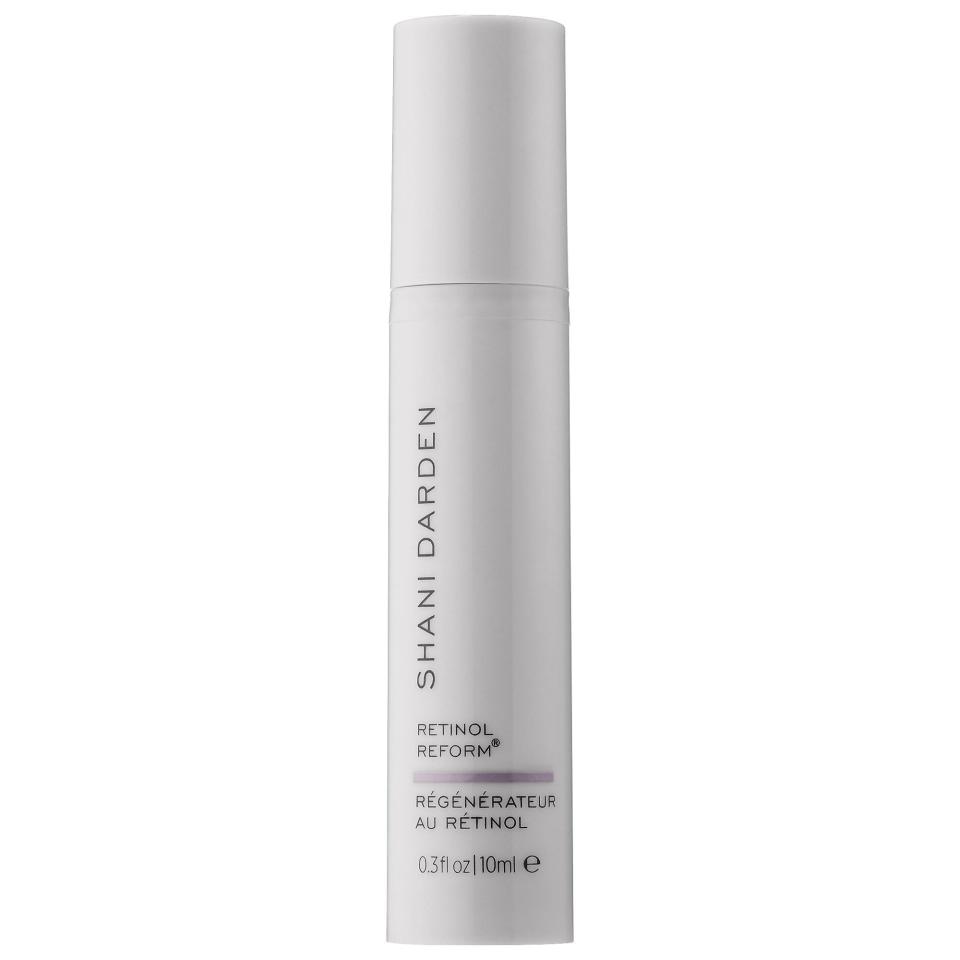10 Best Over the Counter Retinol Products for Younger-Looking Skin

Dermatologists Say These Retinol Products Actually Help Fade Age Spots and Wrinkles
If you want to maintain a youthful complexion, there’s one ingredient dermatologists will always stand by: retinoids, which are vitamin A derivatives that help improve skin cell turnover.
Translation: “When you apply a retinoid, you’re constantly exfoliating the top layers of skin,” says Meera Sivendran, M.D., assistant professor of dermatology at Mount Sinai in New York. The result? You’ll prevent (and smooth) fine lines and wrinkles, improve skin texture, lighten dark spots, and unclog pores to keep blackheads and whiteheads away.
Problem is, you typically need a prescription to get your hands on one. That’s where retinol comes in—a type of retinoid that is most often available over-the-counter. OTC retinol products usually aren’t as potent as their prescription-strength counterparts, so they will generally deliver less dramatic effects. That simply means they take a bit longer to work.
However, prescription-strength retinoids are often more irritating to the skin than an OTC retinol, says Dr. Sivendran, and can cause dryness, redness, or even slight peeling. Trying out a retinol routine first is a great way to get some of the anti-aging benefits for fewer side effects.
How to choose (and use) the best OTC retinol face cream or serum
Look for moisturizers: Because retinol can be drying, look for a cream or serum that also includes moisturizing ingredients—such as hyaluronic acid, ceramides, and shea butter—to boost moisture and minimize irritation.
Start slow: When you first start using a retinol product, expect to have dry or flaky skin during the first one or two weeks, particularly around your eyes, nose, and mouth, says Dr. Sivendran. After that, your skin should adapt. Start by first applying a pea-sized amount every other night. Still too much? Drop back to every third night. Eventually, you can work up to nightly use once you know your complexion can handle it.
Don’t forget SPF: Retinol makes your skin more sensitive to the sun, especially if you decide to use one during the day. If you don’t protect your face with sunscreen, you may be setting yourself up for more damage like burning or discoloration in the long run. You should always use SPF during the day, even if you applied your retinol cream at night.
Seeing a dermatologist can also help you get on the right regimen for your skin care concerns, but there are many OTC brands that make a good retinol product, says Lady Dy, M.D., a dermatologist with Advocate Lutheran General Hospital in Park Ridge, IL and founder of the Dy Dermatology Center. Here are the best OTC retinol face products you can try, all available without a prescription.

1) Regenerist Retinol 24 Night Facial Cream
Olay
Olay’s newest launch may be its best yet. The Retinol24 night collection was specifically formulated for potency and skin penetration—meaning all of the good stuff actually sinks into your skin to work its magic. On top of that, this cream includes top-notch hydrators and niacinamide (aka vitamin B3) to minimize irritation and maximize radiance. Bonus: It’s fragrance-free and never feels greasy on the skin.

Rapid Wrinkle Repair Moisturizer SPF 30
Neutrogena
amazon.com
$14.99
Dr. Sivendran says many of her patients love using this line from Neutrogena. This product not only includes retinol but also contains sunscreen SPF 30 (to protect your skin) and a glucose complex (to help speed up the exfoliation process) while it gets to work. Plus, it’s packed with hydrating hyaluronic acid to draw in moisture and plump the skin. The Good Housekeeping Institute also ranked this serum among its top three retinol-based products.

3) SkinMedica Age Defense Retinol Complex
SkinMedica
amazon.com
This retinol cream has a cocktail of beneficial ingredients—like ceramides, niacinamide, peptides, and vitamin E—for a nourishing formula that can be used on any skin type. Testers swear you’ll be hooked once you try it. “I have very sensitive skin and this product is the only one I can use,” one reviewer wrote. “I tried many but always come back to SkinMedica Retinol Complex. It has made my skin more youthful looking, glowing with less wrinkles and smooth pores.”

4) Adapalene Gel 0.1% Acne Treatment
Differin
walmart.com
$12.88
If we had to keep track of the number of derms who recommend Differin, we’d be out of fingers and toes. The first prescription-strength retinoid (adapalene) available OTC, this cult-favorite product is especially effective for a range of skin concerns from acne and discolorations to fine lines and wrinkles. Be sure to use this one with a gentle moisturizer, as it acts as more of a treatment. If you experience irritation, wash your face first, then apply a moisturizer and follow up with the retinol on top at night, recommends Dr. Sivendran. “That gives you a barrier in between your skin and the retinol, improving tolerability,” she says.

10) Resurfacing Retinol Serum
CeraVe
amazon.com
$16.96
If you have finicky, breakout-prone skin but want a more budget-friendly pick, this one is for you. “CeraVe, as a brand, is great for people with sensitive skin, as they focus on maintaining the skin’s barrier function,” says Dr. Ilyas. This gentle formula contains ceramides to reduce irritation and maintain hydration, as well as niacinamide to even tone and send redness (including acne scars!) packing.

6) Neutrogena Rapid Wrinkle Repair Regenerating Cream
Neutrogena
amazon.com
Dr. Sivendran says many of her patients love using this formula from Neutrogena as a night cream. Retinol gets to work filling out lines and targeting crow’s feet, while hyaluronic acid delivers an immediate plumping effect.

7) First Aid Beauty FAB Skin Lab Retinol Serum
First Aid Beauty
amazon.com
Retinol and peptides join forces to trigger collagen and elastin formation, bringing elasticity back to skin. Hyaluronic acid, ceramides, and colloidal oatmeal plump, soften, and soothe, making this serum a great pick for sensitive skin types.

RetrinAL 0.1 Intensive Cream
Eau Thermale Avène
amazon.com
$70.00
Along with a retinol that’s well absorbed into skin, this silky yet potent cream contains a pro-elastin peptide to stimulate collagen production and vitamin E to fight free radicals that lead to aging says Dr. Dy. The best part? It plays nice with all skin types since it’s noncomedogenic and fragrance-free.

9) La Roche-Posay Redermic R Anti-Aging Retinol Serum
La Roche-Posay
amazon.com
This retinol serum may feel ultra-light on the skin, but it digs deep to smooth uneven texture, reduce fine lines and wrinkles, and fade hyperpigmentation. The formula is noncomedogenic, non-greasy, and gentle enough to use on sensitive skin. Glycerin, sodium hyaluronate (a form of hyaluronic acid), and plant oils also offer a moisture boost.

Retinol Reform
Shani Darden Skin Care
sephora.com
$88.00
This serum contains 2.2% encapsulated retinol, ultra-gentle lactic acid for an exfoliating boost, apple fruit extract for some antioxidant protection, and aloe to soothe. Even with its powerful ingredients, it’s gentle enough to leave the skin feeling smooth and even, rather than irritated.
And our top pick is under $20!